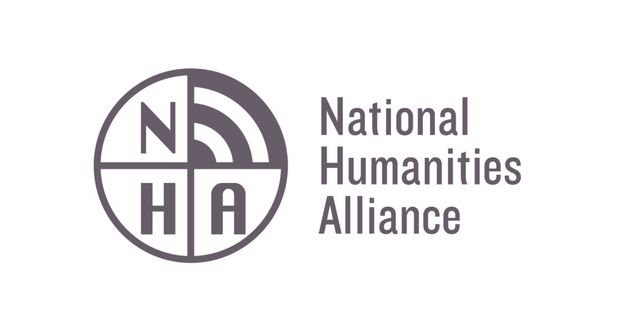BUCH at National Humanities Advocacy Day
On March 14 and 15, 2022, I attended the National Humanities Alliance’s Annual Meeting and National Humanities Advocacy Day. These events work together to spread the word on current humanities programs and encourage continued federal funding of the humanities. As an undergraduate staff member at the Boston University Center for the Humanities, I addressed the impact that federal funding has on humanities programming at BU and beyond. 
The National Humanities Alliance’s annual meeting prepares advocates for the subsequent day of Congressional meetings by spotlighting initiatives aimed at strengthening the humanities. One session, for instance, addressed how to best encourage high school students to pursue humanities courses in college. Lee Coffin, Vice Provost for Enrollment and Dean of Admissions at Dartmouth College, noted that many high schoolers do not consider majors in the humanities because “the words of academia do not translate into high school subjects and vocabularies.” Coffin explained that it is the job of both academic and admissions departments to act as “evangelists” and make the humanities accessible and relevant to all incoming students, regardless of their previous backgrounds. Lynn Wisely, Director of Enrollment Initiatives at Baylor University, seconded the need for academic and admissions departments to work together. At Baylor, she prioritizes removing barriers between faculty and administration. Throughout the annual meeting, the conversation repeatedly turned to the ways the humanities are woven into all aspects of life and the importance of pushing back on the notion that humanities funding and education only benefits the elite or those with advanced degrees.
I saw firsthand the widespread impact of humanities programs through the projects of the fellow members of my advocate group. The Massachusetts group was led by Jennifer Grodsky (Vice President for Federal Relations at BU) and Peter DeYoe (Associate Director for Legislative Affairs at Harvard). Advocates included: Austin Sarat (Chair of Political Science, Amherst College), Darryl Harper (Director of the Center for Humanistic Inquiry, Amherst College), Emily Todd (Chair of English Department, Westfield State), Eric Schmidt (Assistant Director of African Studies Center, BU), and Jessica Farrell (Community Facilitator, Educopia Institute). Throughout the day, we met with Congressional staffers to advocate for continued federal funding for humanities programs, including the National Endowment for the Humanities, the National Archives and Records Administration, the Institute of Museum and Library Services, and the Department of Education’s Title VI International and Foreign Language Education programs. While normally held on Capitol Hill, this year’s advocacy day was adapted to a virtual format. During each Zoom meeting, members of the advocacy group took turns explaining ways humanities programs impact the attending Congress member’s constituents. Over and over the themes of community and social justice emerged, from the role of libraries as a town’s civic space to how archives can be used to promote equitable historical accounts. After presenting examples most relevant to a specific Congress member’s goals, we asked for their support for a forthcoming “Dear Colleagues” letter requesting robust federal funding for these humanities programs in FY23. 
The Center for the Humanities demonstrates the immense dividends that come from relatively small investments in the humanities. The Center was founded in 1981 by forward-looking professors who used seed money from the National Endowment for the Humanities to begin an endowment which has steadily grown ever since. After decades of supporting the humanities at Boston University, the Center has recently extended its outreach to the community at large. For instance, the Center’s Forums, begun in 2017, invite the exchange of ideas between scholars in humanities fields and others who stand to benefit from addressing social problems and their prospective solutions together with humanists. Last year, the Center launched “The One and the Many,” a residential humanities-based summer program for underserved and low-income high school students. The 2021 theme, Social Movements and Social Change, encouraged students to draw on literary texts, films, music, political writings, historical documents, visual art, and other cultural works to study the maintenance of civic life and democracy. The Center’s growing initiatives show the potential for humanities programs to have tangible positive impacts outside of the academy. Demonstrating BU’s recognition of the Center’s role in promoting the humanities, Jennifer Grodsky is committed to including undergraduate staff from the Center in Humanities Advocacy Day in future years, even when it resumes in in-person form.
Humanities Advocacy Day was an exciting opportunity to hear about the incredible breadth of humanistic programming and to encourage continued support for the humanities for years to come.